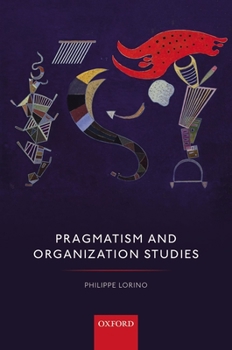Pragmatism and Organization Studies
Select Format
Select Condition 
Book Overview
Many streams of research in organization and management have criticized the mainstream view of organizations as decision-making and information-processing structures, controlled through rational representations (substantive or procedural rationality). In spite of their differences, these streams of research share some key theoretical principles: Their processual view of organizing as 'becoming', their emphasis on the key role of action and action meaning; their interest in the agential power of artefacts and objects; the exploratory and inquiring
nature of organizing. This book argues that Pragmatist thought can contribute to those approaches offering some theoretical argument, both as a general intellectual orientation and as a conceptual toolbox. As a general attitude, Pragmatism develops a radical critique of all the dualisms which often hinder organization
studies: Thought and action, design and utilization, decision and execution, reality and representation, to name a few. As a conceptual toolbox, Pragmatism can contribute and clarify key concepts for organization and management studies, such as inquiry, semiotic mediation, habit, abduction,
trans-action, and valuation. However, Pragmatist thought is still little known by organization and management scholars and by reflexive managers. The proposed book aims at making pragmatist key notions accessible to them and applicable to theorize organizations and transform managerial practices.
nature of organizing. This book argues that Pragmatist thought can contribute to those approaches offering some theoretical argument, both as a general intellectual orientation and as a conceptual toolbox. As a general attitude, Pragmatism develops a radical critique of all the dualisms which often hinder organization
studies: Thought and action, design and utilization, decision and execution, reality and representation, to name a few. As a conceptual toolbox, Pragmatism can contribute and clarify key concepts for organization and management studies, such as inquiry, semiotic mediation, habit, abduction,
trans-action, and valuation. However, Pragmatist thought is still little known by organization and management scholars and by reflexive managers. The proposed book aims at making pragmatist key notions accessible to them and applicable to theorize organizations and transform managerial practices.
Format:Paperback
Language:English
ISBN:0198753519
ISBN13:9780198753513
Release Date:April 2018
Publisher:Oxford University Press (UK)
Length:370 Pages
Weight:1.40 lbs.
Dimensions:0.9" x 21.8" x 9.1"
Customer Reviews
0 rating





